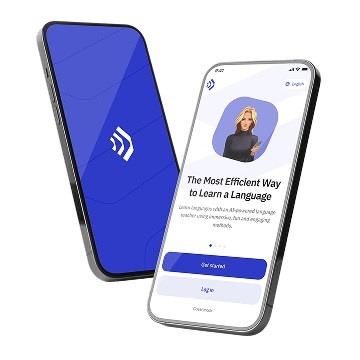In recent years, there has been a noticeable interest in learning Portuguese in Lithuania. This trend can be attributed to the increasing global influence of Portuguese-speaking countries like Brazil and Portugal in business, culture, and tourism. As Lithuania continues to expand its international connections, many Lithuanians see the value in acquiring new language skills, particularly in languages such as Portuguese which open up numerous opportunities globally.
Economic Opportunities: With Brazil being one of the largest economies in the world, learning Portuguese provides Lithuanians with an edge in the business sector, especially in fields like trade, diplomacy, and international relations.
Cultural Exchange: Portugal, known for its rich history and culture, attracts many Lithuanians interested in cultural exchange and educational opportunities. Learning Portuguese enables deeper engagement and understanding of Portuguese-speaking cultures.
Academic Collaborations: There are increasing academic partnerships and exchange programs between Lithuania and Portuguese-speaking countries. Proficiency in Portuguese can facilitate participation in these programs.
Portuguese Learning Institutions in Lithuania
There are several reputable institutions and language schools in Lithuania that offer Portuguese language courses. These range from beginner to advanced levels, providing comprehensive language training that caters to various learning needs and preferences.
Vilnius University: This prestigious university offers courses in Portuguese language and culture, focusing on both European and Brazilian Portuguese. The courses are designed to improve the students’ linguistic skills and cultural awareness.
Kaunas Language School: Known for its flexible learning schedules, Kaunas Language School offers evening and weekend Portuguese classes, making it easier for working professionals to attend.
Private Language Tutors: For those preferring personalized attention, numerous experienced private tutors in major cities like Vilnius, Kaunas, and Klaipėda offer tailor-made Portuguese lessons.
Online Portuguese Learning Resources
The digital age has made learning Portuguese more accessible than ever. Lithuanians can now utilize various online platforms and resources to learn Portuguese at their convenience.
Mobile Apps: Apps like Duolingo, Babbel, and Memrise offer interactive Portuguese courses that are fun and engaging. These apps allow learners to practice reading, writing, speaking, and listening skills at their own pace.
Online Courses: Platforms such as Udemy, Coursera, and Rosetta Stone provide comprehensive online Portuguese courses. These courses often include video lessons, quizzes, and interactive exercises that cater to different learning styles.
Virtual Language Exchange: Websites like Tandem and HelloTalk connect learners with native Portuguese speakers for language exchange, allowing for practical language practice and cultural exchange.
Benefits of Learning Portuguese in Lithuania
Learning Portuguese in Lithuania comes with a multitude of benefits that extend beyond language skills.
Enhanced Career Prospects: Proficiency in Portuguese can significantly enhance career opportunities, particularly in international business, tourism, and diplomatic services. It adds a competitive edge to resumes in a globalized job market.
Access to Portuguese-Speaking Countries: Knowledge of Portuguese opens up travel and living opportunities in countries like Brazil, Portugal, Mozambique, and Angola, providing rich experiences and broader perspectives.
Cultural Appreciation: Learning Portuguese allows individuals to appreciate Lusophone cultures through literature, films, music, and cuisine, leading to a deeper global understanding.
Challenges and Solutions in Learning Portuguese
While the benefits of learning Portuguese are numerous, learners in Lithuania may face certain challenges.
Language Complexity: Portuguese is known for its complex phonetics and verb conjugations. Overcoming this can be managed through consistent practice, using language apps, and engaging in conversations with native speakers.
Limited Exposure: The limited presence of Portuguese-speaking communities in Lithuania may reduce opportunities for immersive language practice. This can be mitigated by participating in online language exchange communities or traveling to Portuguese-speaking countries.
Resource Availability: There might be a limited availability of advanced Portuguese learning materials in local bookstores or libraries. Learners can resort to online resources, e-books, and ordering books from international retailers to overcome this challenge.
Conclusion
The interest in learning Portuguese in Lithuania is a reflection of the broader global trends towards multilingualism and cultural openness. With the right resources, institutions, and dedication, Lithuanians can effectively learn Portuguese, thereby opening doors to myriad opportunities both locally and internationally. Whether for professional growth, academic purposes, or personal satisfaction, the journey of learning Portuguese in Lithuania is an investment in a global future.





